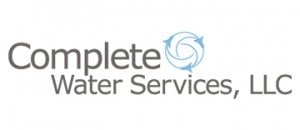Top Three Things to Do If You Receive A Notice of Violation for Your Industrial Wastewater Pretreatment System
- Do not ignore the violation letter
- Investigate the cause of the violation
- Operating pH is out of spec-proper pH is critical to many physical/chemical treatment processes as well as biological treatment processes. In addition, permits include a range of pH levels that discharge pH must be within to avoid violations
- Treatment equipment may need cleaning-some processes will carry over solids into the effluent if not properly cleaned periodically.
- A higher than normal discharge of untreated wastewater may have been sent to wastewater treatment, this happens on frequent basis in food processing plants and may be hard to confirm weeks after it occurred, especially if no one reported unusual conditions. You need to have good communication with production and sanitation personnel that are aware that high strength discharges can have a significant impact on wastewater treatment processes and are willing to notify wastewater operations if this occurs. It is important for pretreatment system operators to recognize potential problems with high influent loading conditions and document when it happened and possible corrective actions that may be required.
- Develop a response to the violation letter
You need to develop a response to the permitting authority as soon as possible, the violation letter will often include a timeline as to when response should be submitted. Facilities that have a series of violation letters may be categorized a significant violator, this may include fines as well as having the facility listed a significant violator in the newspaper and other publications.
It can be difficult to determine the cause of a violation as sometimes they may have occurred several weeks before a lab analysis is received that notes the violation or a violation letter is issued.
Some common causes may include-
Violation notices require a response within a specified time with a corrective action plan that will prevent future violations. The corrective actions listed must be realistic and hopefully capable if being implemented quickly. If the corrective action will take some time to be implemented, this should be negotiated with the permitting authority.
CWS can provide audits of food manufacturing facilities with a report on deficiencies along with recommendations on options for corrective actions. Our clients tell us they appreciate our many years of experience and that we advise them on the most cost-effective but reliable solutions to their issues.
